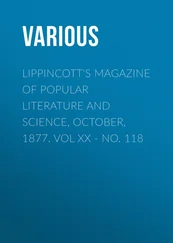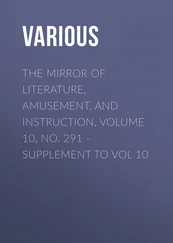Isaac Disraeli - Curiosities of Literature (Vol. 1-3)
Здесь есть возможность читать онлайн «Isaac Disraeli - Curiosities of Literature (Vol. 1-3)» — ознакомительный отрывок электронной книги совершенно бесплатно, а после прочтения отрывка купить полную версию. В некоторых случаях можно слушать аудио, скачать через торрент в формате fb2 и присутствует краткое содержание. Жанр: unrecognised, на английском языке. Описание произведения, (предисловие) а так же отзывы посетителей доступны на портале библиотеки ЛибКат.
- Название:Curiosities of Literature (Vol. 1-3)
- Автор:
- Жанр:
- Год:неизвестен
- ISBN:нет данных
- Рейтинг книги:3 / 5. Голосов: 1
-
Избранное:Добавить в избранное
- Отзывы:
-
Ваша оценка:
- 60
- 1
- 2
- 3
- 4
- 5
Curiosities of Literature (Vol. 1-3): краткое содержание, описание и аннотация
Предлагаем к чтению аннотацию, описание, краткое содержание или предисловие (зависит от того, что написал сам автор книги «Curiosities of Literature (Vol. 1-3)»). Если вы не нашли необходимую информацию о книге — напишите в комментариях, мы постараемся отыскать её.
Curiosities of Literature (Vol. 1-3) — читать онлайн ознакомительный отрывок
Ниже представлен текст книги, разбитый по страницам. Система сохранения места последней прочитанной страницы, позволяет с удобством читать онлайн бесплатно книгу «Curiosities of Literature (Vol. 1-3)», без необходимости каждый раз заново искать на чём Вы остановились. Поставьте закладку, и сможете в любой момент перейти на страницу, на которой закончили чтение.
Интервал:
Закладка:
It was the literary humour of a certain Mæcenas, who cheered the lustre of his patronage with the steams of a good dinner, to place his guests according to the size and thickness of the books they had printed. At the head of the table sat those who had published in folio, foliissimo ; next the authors in quarto ; then those in octavo . At that table Blackmore would have had the precedence of Gray. Addison, who found this anecdote in one of the Anas, has seized this idea, and applied it with his felicity of humour in No. 529 of the Spectator.
Montaigne's Works have been called by a Cardinal, "The Breviary of Idlers." It is therefore the book for many men. Francis Osborne has a ludicrous image in favour of such opuscula. "Huge volumes, like the ox roasted whole at Bartholomew fair, may proclaim plenty of labour, but afford less of what is delicate , savoury , and well-concocted , than SMALLER PIECES."
In the list of titles of minor works, which Aulus Gellius has preserved, the lightness and beauty of such compositions are charmingly expressed. Among these we find—a Basket of Flowers; an Embroidered Mantle; and a Variegated Meadow.
A CATHOLIC'S REFUTATION.
Table of Contents
In a religious book published by a fellow of the Society of Jesus, entitled, "The Faith of a Catholic," the author examines what concerns the incredulous Jews and other infidels. He would show that Jesus Christ, author of the religion which bears his name, did not impose on or deceive the Apostles whom he taught; that the Apostles who preached it did not deceive those who were converted; and that those who were converted did not deceive us. In proving these three not difficult propositions, he says, he confounds "the Atheist , who does not believe in God; the Pagan , who adores several; the Deist , who believes in one God, but who rejects a particular Providence; the Freethinker , who presumes to serve God according to his fancy, without being attached to any religion; the Philosopher , who takes reason and not revelation for the rule of his belief; the Gentile , who, never having regarded the Jewish people as a chosen nation, does not believe God promised them a Messiah; and finally, the Jew , who refuses to adore the Messiah in the person of Christ."
I have given this sketch, as it serves for a singular Catalogue of Heretics .
It is rather singular that so late as in the year 1765, a work should have appeared in Paris, which bears the title I translate, "The Christian Religion proved by a single fact ; or a dissertation in which is shown that those Catholics of whom Huneric, King of the Vandals, cut the tongues, spoke miraculously all the remainder of their days; from whence is deduced the consequences of this miracle against the Arians, the Socinians, and the Deists, and particularly against the author of Emilius, by solving their difficulties." It bears this Epigraph, " Ecce Ego admirationem faciam populo huic, miraculo grandi et stupendo ." There needs no further account of this book than the title.
THE GOOD ADVICE OF AN OLD LITERARY SINNER.
Table of Contents
Authors of moderate capacity have unceasingly harassed the public; and have at length been remembered only by the number of wretched volumes their unhappy industry has produced. Such an author was the Abbé de Marolles, otherwise a most estimable and ingenious man, and the patriarch of print-collectors.
This Abbé was a most egregious scribbler; and so tormented with violent fits of printing, that he even printed lists and catalogues of his friends. I have even seen at the end of one of his works a list of names of those persons who had given him books. He printed his works at his own expense, as the booksellers had unanimously decreed this. Menage used to say of his works, "The reason why I esteem the productions of the Abbé is, for the singular neatness of their bindings; he embellishes them so beautifully, that the eye finds pleasure in them." On a book of his versions of the Epigrams of Martial, this critic wrote, Epigrams against Martial. Latterly, for want of employment, our Abbé began a translation of the Bible; but having inserted the notes of the visionary Isaac de la Peyrere, the work was burnt by order of the ecclesiastical court. He was also an abundant writer in verse, and exultingly told a poet, that his verses cost him little: "They cost you what they are worth," replied the sarcastic critic. De Marolles in his Memoirs bitterly complains of the injustice done to him by his contemporaries; and says, that in spite of the little favour shown to him by the public, he has nevertheless published, by an accurate calculation, one hundred and thirty-three thousand one hundred and twenty-four verses! Yet this was not the heaviest of his literary sins. He is a proof that a translator may perfectly understand the language of his original, and yet produce an unreadable translation.
In the early part of his life this unlucky author had not been without ambition; it was only when disappointed in his political projects that he resolved to devote himself to literature. As he was incapable of attempting original composition, he became known by his detestable versions. He wrote above eighty volumes, which have never found favour in the eyes of the critics; yet his translations are not without their use, though they never retain by any chance a single passage of the spirit of their originals.
The most remarkable anecdote respecting these translations is, that whenever this honest translator came to a difficult passage, he wrote in the margin, "I have not translated this passage, because it is very difficult, and in truth I could never understand it." He persisted to the last in his uninterrupted amusement of printing books; and his readers having long ceased, he was compelled to present them to his friends, who, probably, were not his readers. After a literary existence of forty years, he gave the public a work not destitute of entertainment in his own Memoirs, which he dedicated to his relations and all his illustrious friends. The singular postscript to his Epistle Dedicatory contains excellent advice for authors.
"I have omitted to tell you, that I do not advise any one of my relatives or friends to apply himself as I have done to study, and particularly to the composition of books, if he thinks that will add to his fame or fortune. I am persuaded that of all persons in the kingdom, none are more neglected than those who devote themselves entirely to literature. The small, number of successful persons in that class (at present I do not recollect more than two or three) should not impose on one's understanding, nor any consequences from them be drawn in favour of others. I know how it is by my own experience, and by that of several amongst you, as well as by many who are now no more, and with whom I was acquainted. Believe me, gentlemen! to pretend to the favours of fortune it is only necessary to render one's self useful, and to be supple and obsequious to those who are in possession of credit and authority; to be handsome in one's person; to adulate the powerful; to smile, while you suffer from them every kind of ridicule and contempt whenever they shall do you the honour to amuse themselves with you; never to be frightened at a thousand obstacles which may be opposed to one; have a face of brass and a heart of stone; insult worthy men who are persecuted; rarely venture to speak the truth; appear devout, with every nice scruple of religion, while at the same time every duty must be abandoned when it clashes with your interest. After these any other accomplishment is indeed superfluous."
MYSTERIES, MORALITIES, FARCES, AND SOTTIES.
Интервал:
Закладка:
Похожие книги на «Curiosities of Literature (Vol. 1-3)»
Представляем Вашему вниманию похожие книги на «Curiosities of Literature (Vol. 1-3)» списком для выбора. Мы отобрали схожую по названию и смыслу литературу в надежде предоставить читателям больше вариантов отыскать новые, интересные, ещё непрочитанные произведения.
Обсуждение, отзывы о книге «Curiosities of Literature (Vol. 1-3)» и просто собственные мнения читателей. Оставьте ваши комментарии, напишите, что Вы думаете о произведении, его смысле или главных героях. Укажите что конкретно понравилось, а что нет, и почему Вы так считаете.












